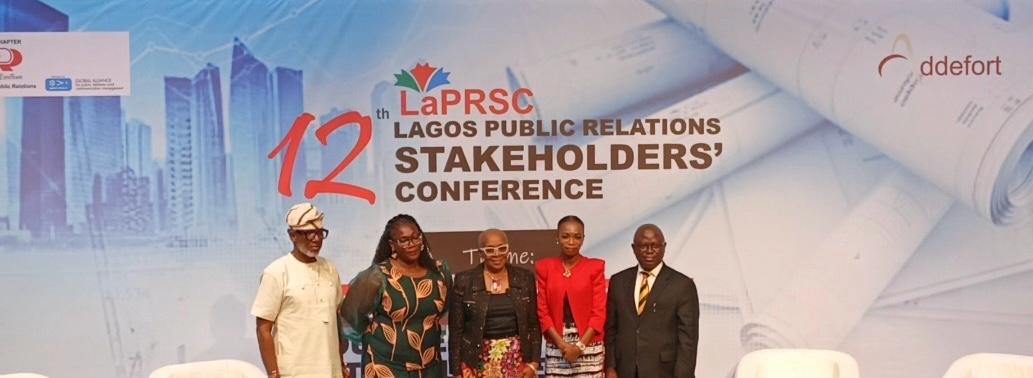Industry leaders recently gathered at the Lagos Public Relations Stakeholders’ Conference.
It was the 12th edition organised with the bid to discuss the challenges and opportunities presented by Nigeria’s youthful population.
Speakers at the event noted that with over 60% of Nigerians under 25, the nation holds a significant demographic advantage that can drive economic growth, innovation, and progress.
However, they affirmed that, if stakeholders fail to properly harness this energy, it can also lead to social, economic, and security challenges.
Importantly, the conference, themed
“Policy Communication: Youth, Education, and National Development, highlighted the need for policy-driven action, clear communication, and inclusive investments that empower young people with skills to thrive in a rapidly changing world.
The Cybercrime Challenge
Onome Damilola Odili, managing director/business lead, Non-profit Advocacy, emphasised the need for comprehensive approaches to address youth involvement in cybercrime activities.
According to her data, 80% of teenagers aged 14 to 18 are involved in internet scams, with another 20% likely to join.
She stressed that, the need to think of it as something that has to do with cultural change.
Again, she highlighted the importance of working directly with students and young people to address the root causes of their involvement in cybercrime.
The Demographic Opportunity and Risk
Meanwhile, Mr. Olufemi Ogundeji, managing director of Vertex Micro Insurance, noted* that Nigeria’s demographic advantage could quickly become* a massive problem if not properly managed.
60% of Nigerians are under 25 years, and if we don’t know what we have in our hands, we better begin to address things now, he warned
He emphasised the need for sustainable job creation, entrepreneurship development, and financial inclusion, stating that , “We need to create sustainable jobs for our youth, we need to introduce entrepreneurship.
“Government is to create a good environment, an environment for people to set up and therefore employ people.”
Participatory Policy and Digital Engagement
Furthermore, Lesijolu Eite Eric-Nwabuzor, executive director of The Comms Avenue, highlighted the importance of engaging youth through platforms they actively use.
*Young people today have a lot more knowledge, a lot more exposure than people at a similar age 10-20 years ago, she observed,
She advocated for “participatory policy creation” and called for a feedback mechanism that is real-time, community-driven, that enables young people to contribute to the creation of this future.”
Eric-Nwabuzor noted that what we see happening quite a lot these days is that Nigerians are beginning to build platforms and connectivity that are shaping the world, suggesting that policymakers should tap into this innovative capacity.
Industry-Youth Connection and Critical Thinking
Finally, Professor Ndukwe-Okafor emphasized the need to bridge the gap between industry needs and youth capabilities, highlighting the importance of critical thinking skills among young people.
Her intervention stressed* the need for more strategic approaches to youth development that align with industry requirements while building essential cognitive skills.







Comment
No comments found.